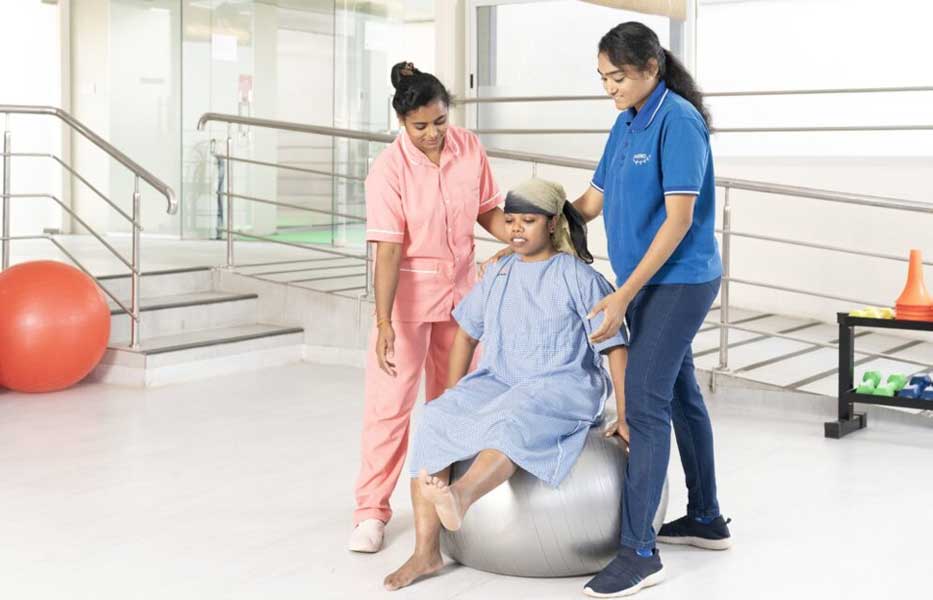
Cancer rehabilitation is a comprehensive approach aimed at improving the physical, emotional, and functional well-being of individuals affected by cancer. This multidisciplinary program addresses the diverse needs of cancer survivors, helping them regain strength, independence, and quality of life after completing cancer treatment.
Components of Cancer Rehabilitation:
-
Physical Therapy:
- Focuses on restoring physical function, mobility, and strength.
- Addresses issues such as fatigue, muscle weakness, and range of motion limitations.
-
Occupational Therapy:
- Helps individuals regain independence in daily activities.
- Provides strategies and adaptations to overcome challenges in self-care, work, and leisure activities.
-
Speech Therapy:
- Assists individuals dealing with speech, swallowing, or communication difficulties.
- Offers techniques to improve vocal function and swallowing abilities.
-
Psychological Support:
- Addresses emotional and psychological challenges associated with cancer diagnosis and treatment.
- Provides counseling, coping strategies, and support groups to manage anxiety, depression, and stress.
-
Nutritional Counseling:
- Offers personalized dietary guidance to support optimal nutrition during and after cancer treatment.
- Addresses issues such as weight management, appetite changes, and dietary restrictions.
-
Pain Management:
- Focuses on alleviating cancer-related pain and improving overall comfort.
- Utilizes a combination of medications, physical modalities, and integrative therapies.
-
Fatigue Management:
- Provides strategies to cope with cancer-related fatigue, a common and debilitating side effect of treatment.
- Incorporates energy conservation techniques and activity pacing.
Benefits of Cancer Rehabilitation:
-
Improved Physical Function:
- Enhances mobility, strength, and endurance, facilitating a return to daily activities and work.
-
Enhanced Quality of Life:
- Addresses physical and emotional challenges, improving overall well-being and satisfaction.
-
Supportive Care:
- Provides holistic support tailored to individual needs, empowering survivors to navigate life after cancer.
-
Prevention of Complications:
- Reduces the risk of long-term complications, such as lymphedema, muscle weakness, and joint stiffness.
-
Promotion of Independence:
- Promotes independence and self-management, empowering survivors to actively participate in their recovery.
Conclusion:
Cancer rehabilitation is an integral part of survivorship care, addressing the diverse needs of individuals beyond the completion of cancer treatment. By focusing on physical, emotional, and functional recovery, cancer rehabilitation programs aim to optimize the overall health and well-being of cancer survivors, supporting them in leading fulfilling and meaningful lives post-treatment.

